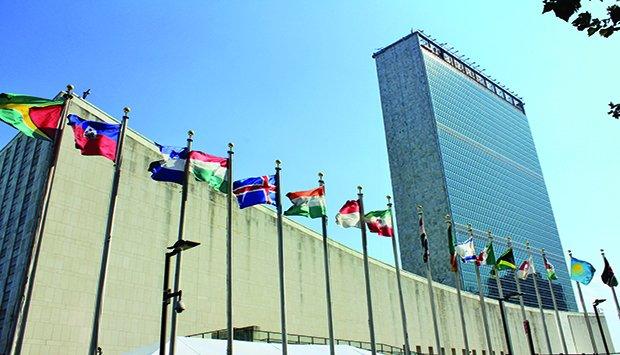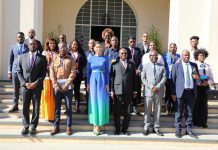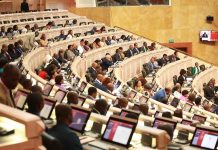Africa-Press – Angola. The United Nations Office on Drugs and Crime (UNODC) is interested in supporting Angola in the process of repatriating assets that have been illicitly left the country, serving as an intermediary and facilitator in the dialogue with the Governments of the receiving countries.
The Office, which focuses on combating illicit drug trafficking and abuse, crime prevention and criminal justice, international terrorism and political corruption, expressed interest during a meeting with the Angolan delegation, headed by the Minister of Justice and Human Rights. , Francisco Queiroz, on the sidelines of the regional workshop on the accelerated follow-up of the implementation of the United Nations Convention against Corruption, which ended yesterday in Cape Town, South Africa.
The Office also praised the results achieved by Angola in the anti-corruption, asset recovery and widespread loss of property in favor of the State, in less than three years.
Within the scope of the fight against corruption and reform of the judicial system underway in the country, the Office was also available to provide specialized technical assistance in training, capacity building and in the financing of specific projects, namely in the computerization of the courts and training at the Institute National Institute of Judicial Studies (INEJ), in the wake of the PRO-REAT program, approved in November 2021.
UNODC also intends to support Angola in the field of protection of species and forest resources, as well as in the fight against illicit trafficking in wood. UNODC was created in 1997 as the Office for Drug Control and Crime Prevention, combining the International Organization of the United Nations Drug Control Program (UNDCP) and the Division of Crime Prevention and Criminal Justice at the United Nations Office in Vienna, having been renamed the United Nations Office on Drugs and Crime in 2002.
The United Nations Conventions and their related protocols underpin all of UNODC’s operational work, such as crime-related treaties and the United Nations Convention against Organized Crime transnational.
The Convention is a legally binding instrument, which entered into force on 29 September 2003, through which States Parties undertake to take a series of measures against transnational organized crime. States that ratify the convention have a duty to create internal mechanisms to combat the problem, adopt new and comprehensive structures for mutual legal assistance, extradition, police cooperation, technical assistance and training.
The convention represents an important step in dealing with transnational crime in recognizing the seriousness of the problem and in gaining understanding from Member States on the importance of a cooperative measure.
It is complemented by three different protocols, namely, to prevent, suppress and punish trafficking in persons, especially women and children, and another against the smuggling of migrants by Land, Sea and Air, and also against the illicit manufacturing and trafficking of weapons. of fire, its parts, components and ammunition.
The Protocol to Prevent, Suppress and Punish Trafficking in Persons, Especially Women and Children, aims to bring together the internal crimes of States in the investigation and prosecution process. Another objective of the protocol is to protect victims of human trafficking with full respect.
The protocol against smuggling of migrants by Land, Sea and Air is concerned with the worsening of the problem of organized crime groups for trafficking in persons. It aims to combat and prevent transnational smuggling, as well as promote cooperative decisions to increase protection measures for victims.
The protocol against the illicit manufacturing of and trafficking in firearms, their parts, components and ammunition was adopted to prevent and provide a cooperative measure for the four items incorporated.
By accepting the protocol, member states commit to adopting domestic criminal offenses for illegal manufacturing, supplying government-licensed ammunition and monitoring ammunition. Regarding the Convention against Corruption, in resolution 55/61, the General Assembly recognized that an effective international legal instrument, independent of the United Nations Convention against Transnational Organized Crime, was desirable.
The text of the Convention was negotiated during seven sessions held between 21 January 2002 and 1 October 2003. The Convention was adopted by the General Assembly on 31 October 2003. In the same year, States adopted the United Nations Convention against Corruption (UNCAC), having entered into force in December 2005.
As of 9 November 2012, 140 countries have signed and 164 countries (States Parties) have ratified UNCAC. UNODC acts as the Secretariat of the Conference of States Parties (CoSP) to UNCAC, and is also one of the main initiators of the establishment of the International Anti-Corruption Academy (IACA), whose main function is, among other things, to facilitate an implementation UNCAC’s most effective
For More News And Analysis About Angola Follow Africa-Press






